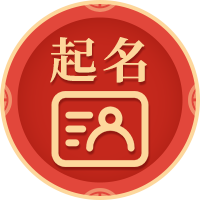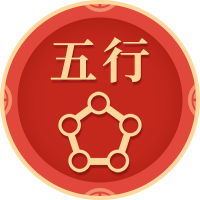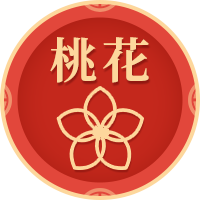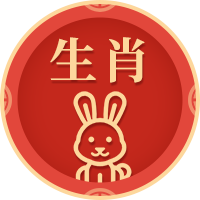父母皆姓何究竟怎样起名才更出色呢
- 作者: 郭瑶吉
- 来源: 投稿
- 2024-10-08
一、父母皆姓何究竟怎样起名才更出色呢
以何字为基础何安:安稳、平安
何乐:快乐、幸福
何平:和平、安宁
何嘉:美好、吉祥
何瑞:祥瑞、福气
结合父母姓氏
何之:何姓之光
何为:何姓之才
何以:何姓之德
何若:何姓之美
何许:何姓之贤
寓意美好
何思:思虑周全
何言:言辞得体
何行:行为端正
何意:心意纯良
何志:志向远大
借鉴古诗词
何处春深:出自李白《春夜洛城闻笛》
何当共剪西窗烛:出自苏轼《水调歌头》
何事长向别时圆:出自苏轼《水调歌头》
何日平胡虏:出自岳飞《满江红》
何处望神州:出自李白《望天门山》
其他建议考虑姓氏的读音,避免与名字读音相近,造成混淆。
避免使用过于生僻或难写的字,以免影响书写和记忆。
结合孩子的性别、出生时间等因素,选择寓意吉祥、朗朗上口的名字。
二、父母皆姓何究竟怎样起名才更出色呢视频
何姓起名技巧1. 结合姓氏特点
何姓为单姓,读音为“hé”,声调为阳平。起名时可考虑与何姓相搭配,既能体现姓氏特点,又能增强名字的响亮度。
2. 寓意吉祥选择寓意吉祥的字词,如“福、禄、寿、喜、财、安、康、宁、泰、乐”等,寄托对孩子的美好祝愿。
3. 考虑字形结构何姓为单字,起名时可选择结构简单的字词,避免名字过于复杂难写。
4. 避免谐音注意避免名字出现不雅或不吉利的谐音,以免产生负面影响。
5. 结合五行根据孩子的出生年月日时,推算五行属性,选择与之相生的字词起名,以达到五行平衡。
出色何姓名字示例男孩:
何安康
何福禄
何嘉乐
何天佑
何瑞泽
女孩:
何佳宁
何思雨
何雅萱
何诗涵
何梦瑶
视频示例
[视频链接:何姓起名技巧,打造出色名字]()
视频内容:介绍何姓起名特点
分享起名技巧
展示出色何姓名字示例
提供在线起名工具
三、父母皆姓何究竟怎样起名才更出色呢英语
How to Choose an Outstanding Name for a Child with the Surname "He"
When both parents share the surname "He," choosing a unique and meaningful name for their child can be a challenge. Here are some tips to help you create an exceptional name that will stand out:
1. Consider the Meaning of "He":
The surname "He" means "river" in Chinese. Incorporating this meaning into the child's name can add depth and symbolism. For example:
He Yuan (何源): "Source of the river"
He Jiang (何江): "River flowing through the mountains"
He Hai (何海): "River meeting the sea"
2. Use Rare or Unusual Characters:
Avoid common characters that are frequently used in Chinese names. Instead, opt for less common or unique characters that will make the name more distinctive. For example:
He Xi (何熙): "Bright and prosperous"
He Yu (何煜): "Brilliant and radiant"
He Qing (何清): "Pure and serene"
3. Combine Characters with Different Meanings:
Create a harmonious name by combining characters with complementary meanings. For example:
He Zhi (何志): "Aspirations and determination"
He Xin (何心): "Kind and compassionate heart"
He Ming (何明): "Intelligent and enlightened"
4. Consider the Tone and Rhythm:
Pay attention to the tone and rhythm of the name. Avoid names with too many similar tones or syllables, as they can sound monotonous. For example:
He Hao (何浩): "Vast and boundless" (good tone and rhythm)
He Hua (何华): "Blossoming flower" (poor tone and rhythm)
5. Seek Inspiration from Literature or History:
Draw inspiration from Chinese literature, poetry, or historical figures. Many classic names have beautiful meanings and can add a touch of elegance to your child's name. For example:
He Li (何莉): Inspired by the poet Li Bai
He Lan (何兰): Inspired by the flower orchid
He Yue (何月): Inspired by the moon
6. Consult with a Naming Expert:
If you are struggling to find the perfect name, consider consulting with a professional naming expert. They can provide personalized suggestions based on your family's preferences and the child's birth date.
Remember, the most important factor in choosing a name is that it resonates with you and your family. By following these tips, you can create an outstanding name for your child that will be cherished for a lifetime.
四、父母的姓合在一起取名的意义
父母姓氏合取名的意义父母姓氏合取名是一种常见的取名方式,具有以下意义:
1. 延续家族血脉:父母的姓氏代表着家族血脉,将两个姓氏合在一起取名,寓意着延续家族传承,承载着父母对孩子的期望和祝福。
2. 表达父母恩情:父母的姓氏合取名,体现了父母对孩子的爱和付出。孩子名字中包含着父母的姓氏,时刻提醒着孩子父母的养育之恩。
3. 彰显家庭和睦:父母姓氏合取名,象征着家庭和睦、夫妻恩爱。两个姓氏的结合,代表着父母的共同努力和对孩子的共同呵护。
4. 寄托美好愿望:父母在给孩子取名时,往往会融入自己的美好愿望和期盼。通过将姓氏合取名,父母可以表达对孩子健康、平安、幸福等方面的祝福。
5. 具有纪念意义:父母姓氏合取名,可以作为对特殊事件或人物的纪念。例如,为了纪念祖父母或其他亲人,父母可能会将他们的姓氏融入孩子的名字中。
6. 彰显个性和独特性:
父母姓氏合取名,可以创造出独一无二的名字,彰显孩子的个性和独特性。通过巧妙的组合和搭配,父母可以为孩子取一个既有意义又好听的名字。
7. 符合传统习俗:在一些文化中,父母姓氏合取名是一种传统习俗。例如,在韩国,孩子通常会取父母姓氏的第一个字作为自己的姓氏。
注意事项:避免名字过于复杂或拗口。
考虑名字的寓意和含义,避免取一些不吉利或有负面含义的名字。
尊重孩子的意见,在取名时征求孩子的想法。














